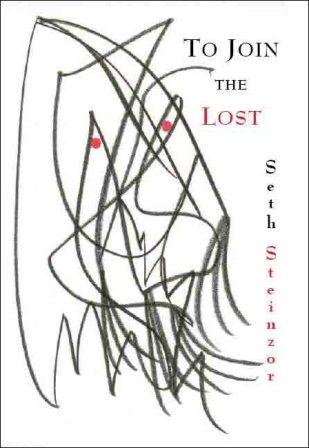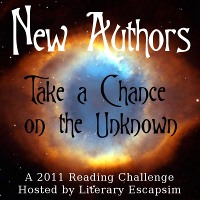Today’s poem is from To Join the Lost by Seth Steinzor, which I reviewed earlier in the week and modernizes Dante’s Inferno:
Canto I (page 11-6) Midway through my life’s journey, I found myself lost in a dark place, a tangle of hanging vines or cables or branches – so dark! – festooning larger solid looming walls or trunks or rocks or rubble, and strange shapes moving through the mist, silent or howling, scuffling through the uneven dirt or dropping from the blotchy sky like thicker clouds, so close sometimes I ducked in fright so that they never quite touched me. Someone I had trusted had led me there. Perhaps it was persons, I could not remember, only how their words and gestures, once so sensible and clear, gradually grew obscure, how their features, once so individual and expressive – this lifted tuft of eyebrow, that kindly smile, that belly laugh – smoothed to nothing in the murk, and how at last they turned away, gibbering, gone. Without them was no path that I could see. A bit ahead to the right the curtain seemed lighter, its patterns more distinct and loosely entwined and permeable, so I stepped over that way, stumbling on the occasional root or protuberance, until I splashed ankle deep into a pool of sucking mud that spread among the blackened boles and mounds its unforgiving mirror far as could be seen, and I could go no farther. Perhaps, I thought, what I had followed, moth-like, was just the sky’s dim luminescence the marsh cast back, and then I knew despair, and pulled my sodden shoe back out, and turned, and a cry swelled in my throat. But just before I let it loose, another shimmer caught my eye. Perhaps, I thought, I’d wandered off my course through tending to my feet and not to where they were going; and holding my gaze level, and gingerly feeling the way with toes that slid forward and sometimes up and around or suddenly down (so my attention was sharply bifurcated while a third, unattended part of me coordinated) towards that distant barely backlit scrim, while yet a fourth part of my poor divided self was straining not to feel a thing at all. Of all four tasks, this last was hardest. Hope and fear impelled me “Run!” but who could run on that turf, rough and sharp as a grater? And vehement voices muttering a flow of words so soft they’d lost their forms now clogged my hearing, aural mush, except that here and there, as clear and hard as pebbles, numbers struck me; and unseen hands behind me plucked my clothing, grabbed my shoulders, stroked my hair. My knees gave way. I huddled there, in sudden lonely silence, long. Then slowly, like a fern uncurling, I rose, not recalling having fallen asleep or having passed the border into awareness of this dismal dawn. Before me, jarringly stood the only straight and undistorted object in my view: a man, tall and thin, head topped by what I took to be a red fleece ski hat, barefoot, robed in simple brown he’d cinched about the waist with a cord. His skinny neck, that sprouted from an itchy looking undergarment, upheld a long and narrow face. A long and narrow nose, sharply hooked, ran like a ridge between the hills of his high cheekbones, and the basins of his cheeks converged upon a small and beautiful mouth. The upper lip was thin and long, the lower shorter, plusher, so the top one drooped a little at the corners, and they made an arc much like a bow whose arrows aim to pierce the clouds, not quite primly frowning, more the meeting of strength and sensitivity. But his great, sad, brown eyes! There’s a distant gaze that looks within, and a regard like a net we cast upon the outer world, that in his eyes were combined: alertly pensive, missing nothing. They were what held me. I stepped forward. Glancing at my squelching shoes, “O voi che siete in piccioletta barca, ” he said, “Oh you who follow me in little boats.” His voice was sweet and soft, and the phrase was one of the few I knew in Italian. Odder to meet an Italian who can’t quote Dante than one who can. Well! Humor was the last thing I’d expected in that desolation. Taken quite aback, I paused, and at that instant, growls, a vicious snarl, a rumble low and ominous, all issued from behind the stumps of a shattered pylon thirty feet away. His robe flaring, he whirled and faced the hidden beasts. “Whatever you were seeking, you won’t find it here,” he said, glancing back. (Oddest: how I did not find it odd to understand him.) “If you don’t lose your way yourself, those three will lose it for you. Come, and I will show you the path out of here.” And backing slowly towards me over shards and ankle-busting holes as if his feet had eyes, he glided, holding all the while the animal danger at bay by looking at it with fiercer focus than any predator, then guided me some yards away behind a ragged rubbish berm. I thought he’d stop to talk, then. Instead, assured I was still with him and unharmed, he whirled so his garment flared like a tulip again, and strode away, impatiently gesturing at me to follow. Not that I had much choice, but still I hesitated. Then I gathered in my hope and hurried after, catching up with him a while before I caught my breath enough to ask him, “Who are you? And what do you want with me?” He answered: “Last things first. You are the one whose fifteenth year blossomed in the city by the Arno, where they were drying the pages of books the river had drenched two years before?” My face froze. He nodded. “And of course you’ve not forgotten her you stood with by the river wall, your arms around each other’s waists, not holding, sweetly ratifying the seal your bodies made from ankle to shoulder?” I could not move. He halted with me. “And how you stood there, watched the brown-green flood, minute by minute on the brink of a kiss that never came because you were afraid? Well, it was she who visited me from one of those bright circles you cannot quite bring yourself to believe in, glowing and slender and blonde and passionate, and she asked me to help you find your way. She called you My Seth, whom I knew as a poet and one of love’s authors. She knew how to ask so her will would be mine.” With finely calculated disregard for how much shock I could absorb, he added, “As for who I am: that year you met and said good-bye to her not knowing how long, you lived in my home town, the place they kicked me out of and set death at the gate to keep me away. You lived in a small hotel off Via Fiume named for her whose hand reached down for me as your Victoria reaches for you.”

Remember, this is just for fun and is not meant to be stressful.
Keep in mind what Molly Peacock’s books suggested. Look at a line, a stanza, sentences, and images; describe what you like or don’t like; and offer an opinion. If you missed my review of her book, check it out here.
Also, sign up for the 2011 Fearless Poetry Reading Challenge because its simple; you only need to read 1 book of poetry. Please contribute to the growing list of 2011 Indie Lit Award Poetry Suggestions (please nominate 2011 Poetry), visit the stops on the National Poetry Month Blog Tour from April.
What did you think?









